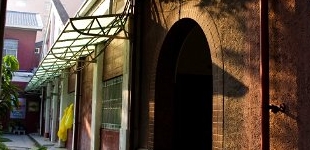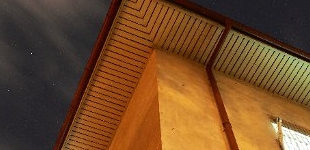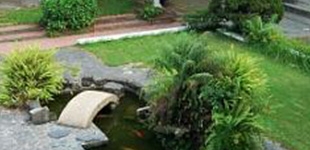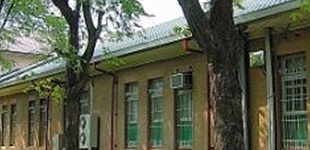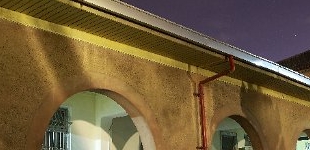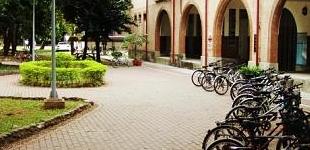詳細資料
|
3/17(二)及3/19(四)邀請馬建華及黃潤和教授 來系演講
各位老師、同學: 主辦單位:國立成功大學 資訊工程系 題 目: Pervasive Smart u-Things and u-Intelligence: Visions and Challenges 內容摘要: Ubiquitous computing (pervasive computing, AmI, or “whatever it is called” computing), in contrast to cyber computing that is mainly for digital e-things in computers/web, is primarily for physical things in the real world and their function/service enhancement or extension by adding computing abilities of information sense, communication and processing to them. Real physical things (object and space) are called u-things, as opposed to the virtual digital e-things, if they are attached, embedded or blended with computers, networks, sensors, actors, IC-tags and so on. Smart u-things are ones that can, more or less, sense, compute, communicate, and/or take some actions according to their goals, situated contexts, users’ needs, etc. Ubiquitous intelligence (UI, u-intelligence) is focused on various levels/kinds of intelligence for such smart u-things, related technologies and their pervasion in the real world towards smart worlds (SW). Probably, UI or u-Intelligence could be regarded as the next intelligence wave after human-emulated AI, nature-inspired soft computing and social-oriented agent technology. Some real world complexity related issues (physical restriction, unpredictable exception, incomplete information, unknown risk/danger, out of control, etc.) would be new factors/dimensions brought about by UI, and much more crucial and challenging in making u-things truly smart and trustworthy. Therefore, the u-intelligence, actually the whole ubicomp/percomp, should be based on u-science and u-engineering, i.e., the systematic study of the u-things. 馬建華教授個人簡介: Jianhua Ma is the Professor of Multimedia Ubiquitous Smart Environment (MUSE) Laboratory in Hosei University since 2000. Previously, he had 16 years’ teaching/research experience at NUDT, Xidian University and the University of Aizu (Japan). His research from 1983 to 2003 covered coding techniques for wireless communications, secure data/audio/video transmission, speech recognition and synthesis, multimedia QoS, hyper-interface, graphics ASIC, e-learning and virtual university, CSCW, multi-agents, Internet audio and video, mobile web service, P2P network, etc. Since 2003 he has been devoted to what he called Smart Hyperspace in Smart Worlds (SW) pervaded with smart/intelligent u-Things including three kinds of essential elements: u-object, u-environment/u-space and u-system, towards Ubiquitous Intelligence (UI, u-Intelligence) or Pervasive Intelligence (PI, π) for u-Services with ubisafe guarantee. Dr. Ma has published over 150 papers in journals and proceedings. He is the Co-EIC of four journals: Journal of Ubiquitous Computing and Intelligence, Journal of Mobile Multimedia, Journal of Autonomic and Trusted Computing, and Int’l Journal of Pervasive Computing and Communications. He is on the editorial boards of IJCPOL, IJDET, IJWMC, IJSH, IJSIA and IJICT, and has edited over 15 journal special issues as a Guest Editor. He organized the 6th Int’l Conf. on Distributed Multimedia Systems (DMS’99) as PC Co-Chair, the 1st Int’l Conf. on Cyber Worlds (CW’02) as one of founders and PC Co-Chairs, and the 18th IEEE Int’l Conf. on Advanced Information Networks and Applications (AINA’04) as a General Co-Chair. He is a founder of Int’l Conf. on Ubiquitous Intelligence and Computing (UIC), and Int’l Conf. on Autonomic and Trusted Computing (ATC), both of which started from 2005. He is the Chair of IEEE CIS Task Force on Autonomic and Trusted Computing.
內容摘要: One of the substantial issues in ubiquitous computing is the automatic processing of information from real world objects and enabling their interactions in the background. This scenario requires a framework on which such information processing and object interaction can be supported. This talk is to present our research progress on the design and implementation of the framework for supporting heterogeneous physical object interactions and services. 黃潤和教授個人簡介: Runhe Huang is a Professor and the Chair in the Department of Computer Science, Hosei University. She received her B.Sc. in Electronics Technology from National University of Defense Technology, China, in 1982, and her PhD in Computer Science and Mathematics from the University of the West of England, UK, in 1993. She worked at National University of Defense Technology during the period of 1982-1988. In 1988, she received a Sino-Britain Friendship Scholarship for her Ph.D. study in U.K. After receiving her PhD, she worked in the University of Aizu, Japan, for 7 years and has been working in Faculty of Computer and Information Sciences at Hosei University, Japan, since 2000. Professor Huang has been working in the field of Computer Science and Engineering for more than 25 years. Her research fields include Computer Supported Collaboration Working, Artificial Intelligent Applications, Multi-Agent Systems, Multimedia and Distributed Processing, Genetic Algorithms, Mobile Computing, Ubiquitous Computing, Grid Computing, and Ubiquitous Intelligence. Professor Huang is the member of IEEE and ACM. She has served as an editor board member of the Journal of Ubiquitous Computing and Intelligence (JUCI) and the Journal of Autonomic and Trusted Computing (JoATC), as a guest editor of the special issue on Innovative Networked Information Systems and Services in the Journal of Interconnection Networks (JOIN), as a quest editor of the special issue on Ubiquitous Computing and Mobile Networking in the International Journal of Wireless and Mobile Computing (IJWMC), as a guest editor of the Special Issue on New Advances and Challenges in Web, Grid and P2P Computing in the International Journal of Web and Grid Services (IJWGS), and as a PC co-chair/PC member for various international conferences.
題 目: Robots and Spacelog in Smart Spaces for Novel u-Services 內容摘要: A smart space is an intelligent real environment such as a room equipped with sensors, actuators and other devices, which can provide automatic responses according to users’ needs and contextual information in the environment. The smart space or environment, as one of the major ubicomp/percomp areas, has recently received much attention. However, in current researches on smart spaces, the sensing and actuation devices are either fixed or embedded in real objects that cannot move on their own. So far there are lots of studies about how to acquire and use contexts, i.e., information used to characterize the situation of an entity, but very less study has been done on how to keep, manage and utilize the context history although it has been realized as one of key issues in smart spaces. Therefore, it will be interesting and worth investigating to know what new services can be offered by smart spaces wherein robots exists, and what new technical issues will arise when smart spaces and robots are combined to realize smart systems. Actually, the robots can be used carrying devices and thus functioned as “motion organs” of a smart space. Further, we have proposed the concept of spacelog that is a continuous collection of existence states and activity experiences of various entities in a physical environment. In fact, the spacelog can be regarded as a space-related database and seen as the context history or “memory organ” of an intelligent real environment. In this talk, we first check the possible roles/services of the robot and the spacelog in a smart space as well as the relevant technical problems in general, and then present our case studies and lessons learned in developing system prototypes using robots and spacelog to provide novel ubiquitous services (u-services) in representative smart spaces..
內容摘要: One of the challenges for ubiquitous intelligence computing is how to make ubiquitous devices having intelligent/smart/autonomic processing capabilities due to their limited capacity and processing power. This talk is to present our research progress on the design and implementation of the intelligence entity sharing pool and the sharing framework and mechanisms of the intelligence entity pool.
相關網址:無 |


